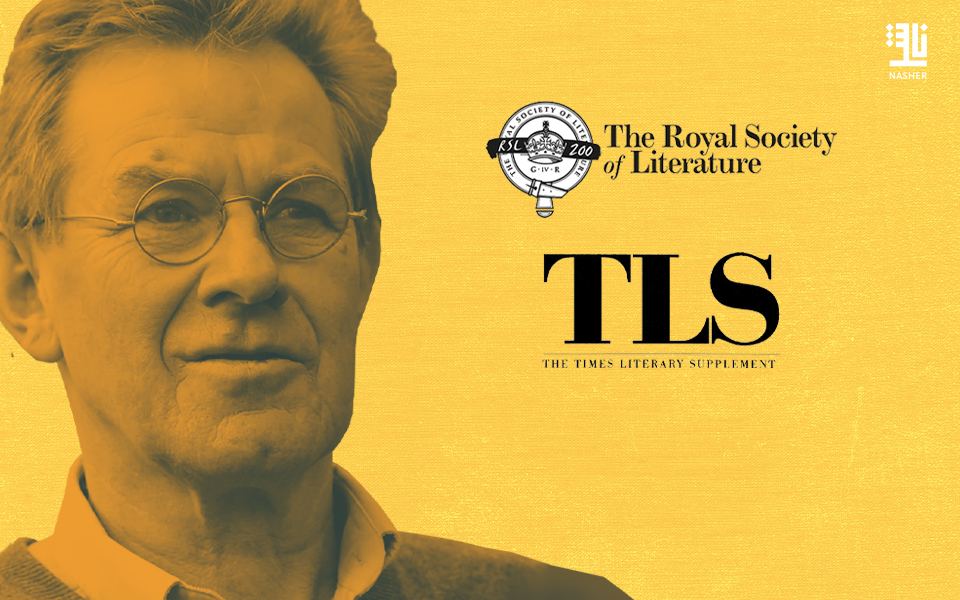the Royal Society of Literature which was founded 1820 is an institution that prides itself year in year out with nothing to disturb the peace of its members. But a letter in the Times Literary Supplement, by Jeremy Treglown and signed by 14 more distinguished writers (among them Ian McEwan, Alan Hollinghurst, Yasmin Alibhai-Brown and Fleur Adcock), calls on the leadership of the RSL to refer itself to the Charity Commission. That is, as charitable foundations go, something like demanding that they turn themselves in for questioning.
It’s only the latest fusillade in what seems to be something barely short of civil war in this longstanding institution. Many longstanding Fellows of the Society are deeply unhappy with the current management – principally its director, Molly Rosenberg and its chair, the poet Daljit Nagra. Everybody is briefing everybody, furious letters are circulating about leaks, and the whole thing is causing considerable distress to those directly involved.
The Royal Society of Literature (RSL) has now confirmed that it is referring itself to the Charity Commission after the open letter.
The RSL, a charity which elects fellows based on literary merit, has been subject to criticism over recent months, including questions over changes to the way that fellows are elected, and the recent postponement of its annual magazine Review. Former editor Maggie Fergusson told the Times that the issue was pulled from print due to an article that was critical of Israel. It was also claimed that Fergusson was dismissed, although the RSL dispute this and say it had been previously understood that this would be her last issue of the magazine.
Fellows have also expressed their disappointment in the RSL for not taking a public stand in support of Salman Rushdie when he was stabbed in 2022. When RSL president Bernardine Evaristo wrote in this paper that the charity “cannot take sides in writers’ controversies and issues, but must remain impartial”, Rushdie responded on X: “Just wondering if the Royal Society of Literature is ‘impartial’ about attempted murder, @BernardineEvari? (Asking for a friend.)”
Both Evaristo and the RSL tweeted in response, clarifying that the line in the article had not been in reference to Rushdie, and Evaristo pointed out that the charity put out two statements about the attack.
Additionally, the RSL has come under fire for expanding its fellowship too quickly. In 2018, a new scheme was launched creating 40 new fellows under 40. Since Evaristo became president in 2021, 60 extra fellows have been appointed as part of the RSL Open initiative, which aims to redress the charity’s historical imbalance and elect fellows from communities, backgrounds and experiences under-represented in UK literary culture.
To be awarded a fellowship, authors must have written at least two “works of outstanding literary merit”. While that remains the case, some authors have questioned whether the honour has the same prestige when granted to writers early in their careers. Former president Marina Warner told the Observer in January: “It is a question of a lack of respect for older members and a loss of institutional history, which was something fellows cherished.”
A representative from the RSL said the charity had decided to refer itself to the Charity Commission earlier this month “due to the sustained campaign of misinformation being made against us”.
“There has been no attempt at censorship”, the representative said. “The process by which new Fellows are elected has been in the public domain since changes were announced in the summer as part of the RSL’s 200 year celebrations.”
“The Review was not cancelled and Maggie Fergusson was not sacked [as she has claimed],” the representative added. “The magazine, which has no set date for publication, will come out in the spring and Maggie’s freelance tenure expired by mutual agreement.”
The representative went on to say that when the RSL team members and chair were shown proofs of the annual magazine at the start of December, it was considered not to be “good enough” for print. “We discussed with the outgoing editor a number of issues – stylistic, editorial and tonal – including querying the context of a written piece that referenced the war in Gaza. There was never any suggestion of editing the piece … The piece in question will be published – unedited – when the new-look magazine comes out in the spring.”







